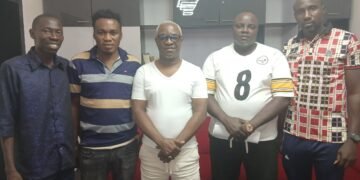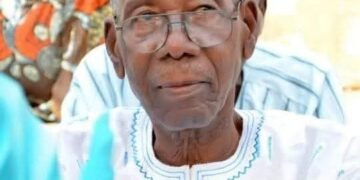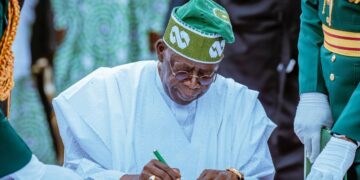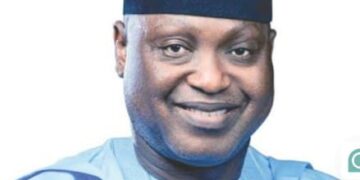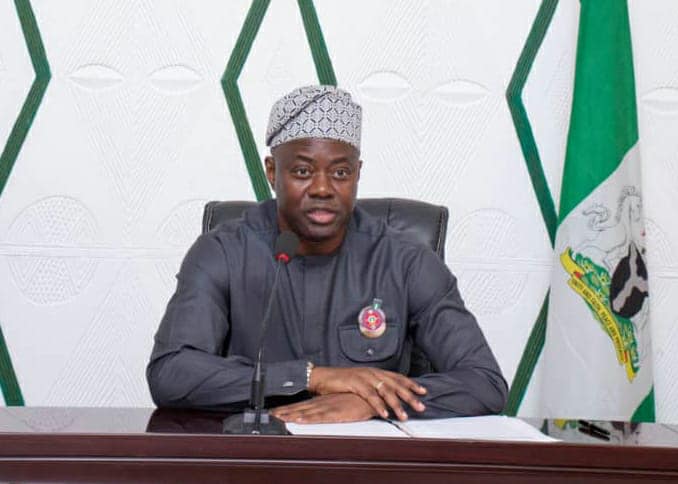Tuesday, the thirteenth day of October 2020, marked the eight anniversary of the departure and transformation from mortality to immortality of the body and soul of Yoruba Ijala Iroko tree, ‘Ojogbon’ Ogundare Foyanmu Ayano, popularly known by his stage name as ‘Dare Foyanmu, a big star and legendary oral poet, who died at the ripe age of 80. He was a musical prodigy who contributed substantially and immensely to the musical, cultural and lingual development of the Yoruba people. He was a bundle of talents whose life could be regarded as woven round music like a tapestry. That day, eight years ago, it was as if there was a permanent stillness in the musical heartbeat of Yorubaland. ‘Dare Foyanmu’s gigantic contributions to the growth of African music cannot be easily forgotten. The lion is no more but his music legacy will endure. It is not an exaggeration to compare ‘Dare Foyanmu with the likes of Michael Jackson, Bob Marley, Steve Wonder, Jimmy Cliff, Miriam Makeba, Fela Anikulapo-Kuti, Yusuf Olatunji Ajao (Baba Legba), Ayinla Omowura, Dauda Epo-Akara, Sikiru Ayinde Barrister, King Sunny Ade, Dr. Orlando Owoh and a host of others. No wonder, he was hailed as ‘Ojogbon-Agba’, meaning ‘Professor Emeritus’. But contrarily, going by the biblical allusion; ‘a prophet is not honoured among his kinsmen’. That is exactly the case of Foyanmu.
This write-up is therefore meant to remember and appreciate this unsung Ogbomoso-born Ijala singer, who through his music had put the name of the ancient town of Ogbomoso on the world map of entertainment. He was born in 1832, his father was Akinlabi Akande Ogunsina of Afilemu, Taara, Ogbomoso, while his mother was Aarinola Oropeju Amope of Esan compound, Taara, Ogbomoso, he was the first son of his parents. Ogundare Foyanmu was twelve years old when his father died, that was the major reason he stayed with his father’s younger brother, Taiwo Oke Akanmu who also happened to be an hunter and ijala singer. Ogundare Foyanmu in his early years received training from his Uncle which helped him later in life.
Another important feature of Afilemu family in the pre-christian era was its socio-cultural beliefs and practices, which centered on the belief in Ogun, the god of thunder of the Yoruba race. All Yoruba families worshipped a divinity among various divinities in the land numbering up to 401. Ogun is the god of Afilemu family. In the compound was located a shrine of Ogun. At that period, reliable sources stated, all the adult male members of the Afilemu family were farmers and hunters in which they earned their living. The romance of this family with Afrel (African Religion) is not surprising; this has to do with the fact that, Ogbomoso in the pre-Christian period was purely an Afrelist society. All deities of the Yoruba race can be found in the town. These include Ogun, Sango, Oya, Esu, Obatala, Oro, Egungun etc. The Egungun (masquerade) of Afilemu’s family is called ‘Egun Odę’. This masquerade was so powerful, dressed with colorful costumes accompanied by drummers and hunters who beat tantalizing and inciting messages to get the masquerade into dramatic actions, feats, and dances.
The names borne by the people of Afilemu family are evidences of their old romance with African Religion. The names include Ogundare, Ogunsina, Ogunleye, Ogunkorede, etc .
In his youthful days, Ogundare Foyanmu was trained as a berber-onigbajamo, though a farmer from the beginning. But he ended up becoming the greatest ‘modern performer of Ijala-poetry of the hunter’ guild and one of the most renowned exemplars of Yoruba culture. Highly talented, he promoted culture and a philosopher, he sang about many issues -Life(Igbe aye), Human Relation(Ibagbepo eda), Good Manner (Iwa rere), Important of Time (Pataki Akoko), Future(Ojo ola), Money(Owo), Position(Ipo), Jealous Woman (Ojowu Obinrin), Betrayer (Odale), Fight(ija), War (ogun) etc. Foyanmu through his music and his cultural philosophy questioned injustice, bad government and racism, and advocated the emancipation of the unity of Yoruba race is a well-known fact. He was driven by a fanatical idealism for a beautiful society. His music, in his own word, was a “weapon” through which he sought to dismantle all cultures of hypocrisy, dishonesty and all forms of oppressive domination. He had a prodigious corpus of philosophy which encapsulated these ideals, and he sang about it in a language and tunes that are distinctively and inimitably his.
There is no gainsaying the fact that Foyanmu might not have a rigorous, systematic ideology of an academic type, but in his chaotically fashioned message, his constituency – the underclass – understood and appreciated him. We cannot put his outputs down to a specific number, but he was a genius helplessly possessed by his ingenuity and as long as he lived, he never stopped to mobilise and inform the “wretched of the earth” with his ijala songs. A catalogue of his evergreen songs testifies to this claim.
‘Dare Foyanmu footprint in the sands of time will remain ineffaceable. The best way to eulogize Foyanmu for his contributions to the growth and development of African culture is to immortalize him. I am therefore using this medium to call on the minister of information and culture, Alhaji Lai Muhammed, Oyo state government, councils chairmen in Ogbomoso zone, Ogbomoso Parapo, Ogbomoso Community Foundation and who-is-who in Ogbomoso to annually organize a memorial in his honour. A monument should be named after him or his house at Taara, Ogbomoso be turned into a museum or a foundation be instituted in his honour, which will take care of the less privileged. Baba Foyanmu deserves more than these compare to his gigantic contributions to the promotion of African culture.
SUNDAY OGUNKUADE
08036142877
OGBOMOSO





